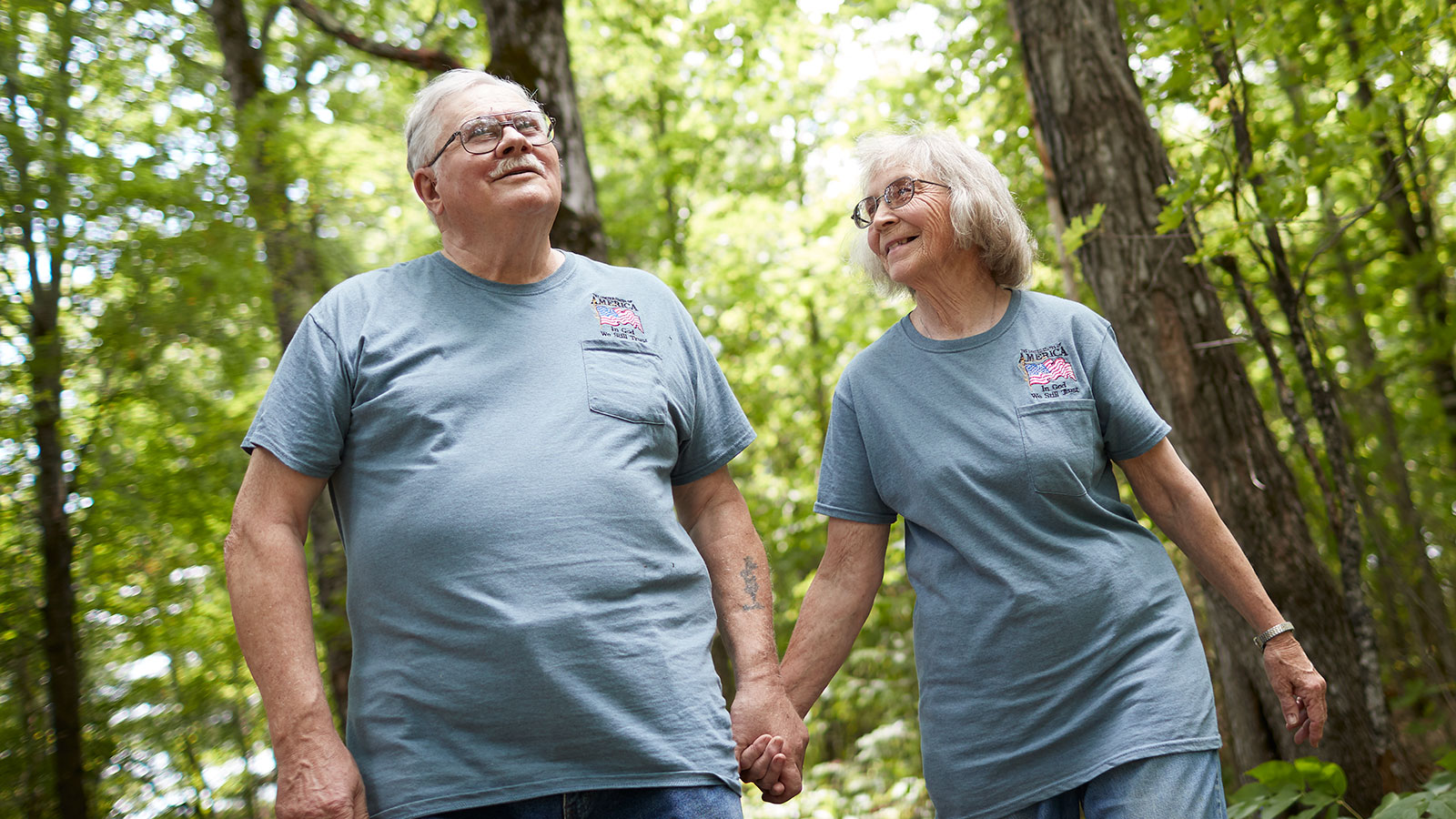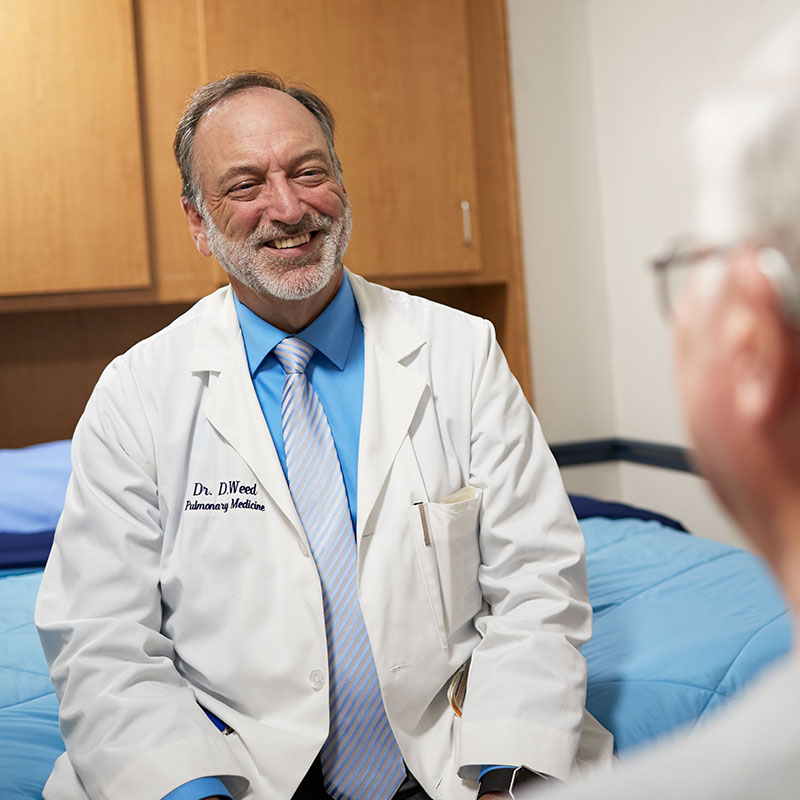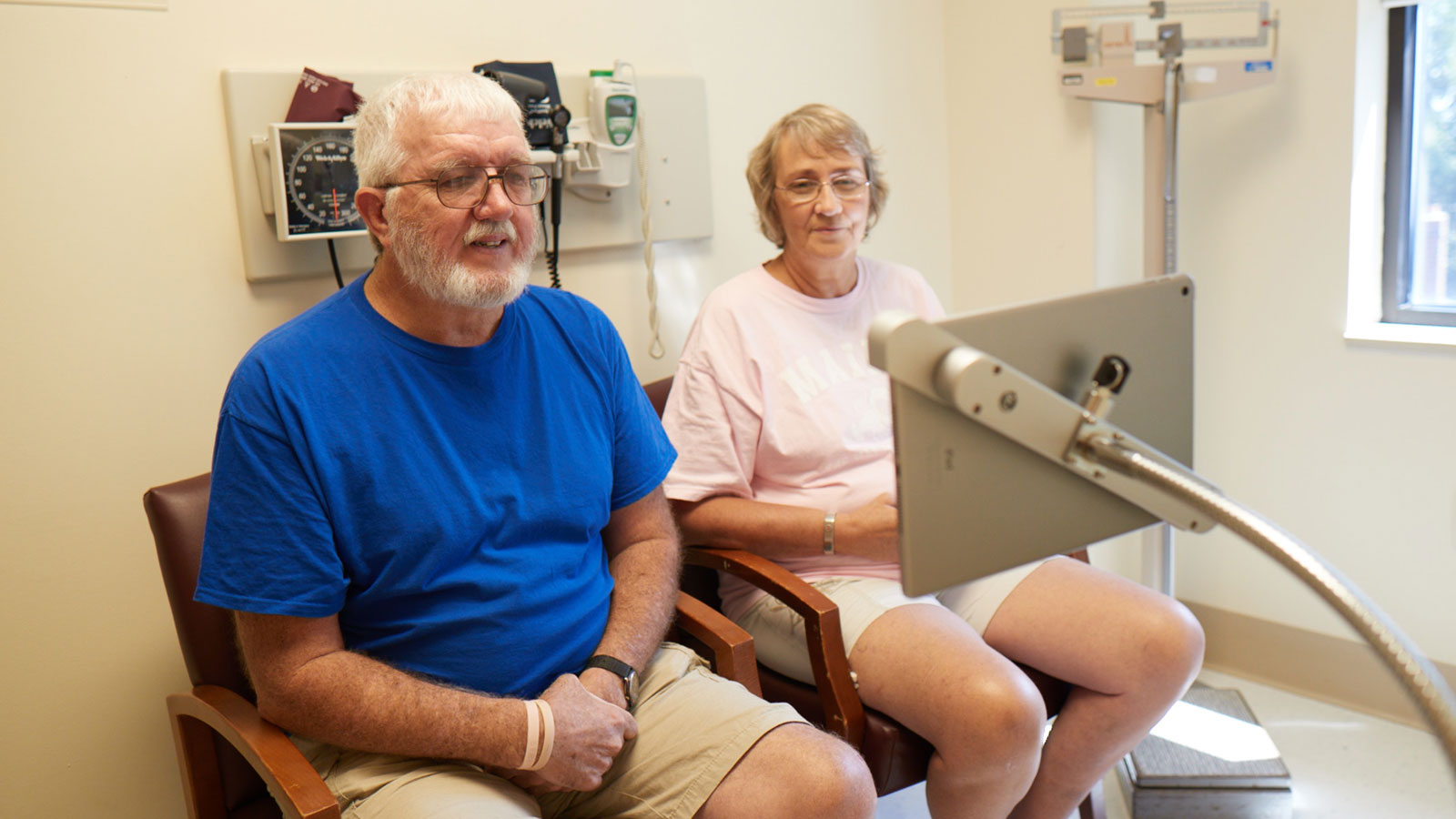A New Reach

A New Reach
Using telemedicine to treat sleep disorders
Artemas Coffin and his wife, Rosemary, walk with a spring in their step as they navigate the wooded pathways behind their farmhouse in Ashland. Leaping down the path ahead of them is their giant malamute, Bullet, a rescue dog that has found a new, loving home with the Coffins. They are each dressed in jeans and matching green t-shirts, embroidered with an American Flag that Art sewed himself. “He keeps us busy,” Rosemary explains as she pats the scruff of Bullet’s neck.
Art and Rosemary are retired. They worked at the Aroostook County Sheriff’s Department and Art also worked at a sawmill. They like to keep busy in retirement. In addition to taking Bullet for walks, Rosemary enjoys working in her vegetable gardens and Art enjoys riding around on his four-wheeler. They have the energy to enjoy their hobbies, in large part, due to Art’s decision (at Rosemary’s insistence) to seek treatment for a medical condition known as obstructive sleep apnea. “I wasn’t resting. I could be at work standing at the lathe and go to sleep standing up,” Art recalls. Art was tired during the day because he wasn’t sleeping well at night. He said that due to his condition, he would stop breathing as many as 60 times an hour and wake up gasping for breath. In addition to that, he would snore so loudly it would keep Rosemary awake. “I could not rest because he was either snoring and keeping me awake, or I was laying there awake so I could poke him when he didn’t breathe,” Rosemary recalls.
Finally, Art made an appointment to see David Weed, DO, a physician who is board-certified in sleep medicine by the American Academy of Sleep Medicine, and heads the Sleep Medicine program at Northern Light AR Gould Hospital in Presque Isle. “Art Coffin came to me many years ago with symptoms of daytime tiredness and fatigue,” Dr. Weed recalls. “He was the first patient we saw here.”

“If it hadn’t been for him I might not even be alive now.”
Art Coffin, patient pictured with David Weed, DO, Head of Northern Light Sleep Diagnostics
AR Gould’s Sleep Medicine Program has evolved considerably since then. It now includes a state-of-the-art four-bed sleep disorders center that is fully accredited by the American Academy of Sleep Medicine. Dr. Weed conducts sleep studies for patients like Art Coffin in the sleep center. “You go there, and you sleep for eight hours or thereabouts, and they have you hooked up and monitor your breathing and your pulse and respiration,” Art says. Dr. Weed was able to diagnose Art with obstructive sleep apnea and get him set up with a CPAP (continuous positive airway pressure) machine, a device which increases air pressure in the throat so that the airway does not collapse when a person breathes in. “It took a little while to get used to it, the constant pressure,” says Art, “Now when I go to bed, I put the mask on and the machine starts automatically, and I get a good night’s sleep.”
Art and Rosemary’s situation is not uncommon. In fact, according to the U.S. Centers for Disease Control, one out of every three Americans report not getting enough sleep. “We know that untreated sleep apnea is associated with diabetes, high-blood pressure, heart disease, stroke, memory change, anxiety, depression, and irritability; a lot of patients would describe themselves as being in a fog,” says Dr. Weed.
Because sleep disorders are such a widespread concern, Northern Light Health is using telemedicine to bring Dr. Weed’s expertise to even more patients in Maine. “Telemedicine affords us an opportunity to be more far-reaching in our effect. When I don’t have to rely on the patient coming to us, we can go to them using an iPad,” he says. Dr. Weed uses that iPad to chat with patients weekly at Northern Light Inland Hospital’s sleep lab in Waterville.
Darrel Conner comes in to Inland to speak with Dr. Weed routinely via telemedicine technology. Like Art Coffin, he too suffers from obstructive sleep apnea and must use a CPAP machine. “My wife kept nudging me at night time and said you’re not breathing, you should be breathing. She nudged me quite a few times and said maybe we should have you checked out to see what’s going on,” he says.
Darrel is glad he sought help. He too sleeps much better using his CPAP machine and says talking with Dr. Weed via an electronic screen is just as good as in person. “I feel like I get very excellent care here. When we talk on Skype, it is just like you and I talking right here,” Darrel says. Besides Inland, Dr. Weed provides sleep medicine services to other Northern Light Health member hospitals.

"My wife kept nudging me at night time and said you’re not breathing you should be breathing. She nudged me quite a few times and said maybe we should have you checked out to see what’s going on."
Darrel Conner, Northern Light Health patient pictured with wife Tootie
It’s made a difference in the lives of the Coffins and the Conners. Darrel has the energy to tinker on old cars with his wife in their garage. Art and Rosemary Coffin are also both getting a better night’s sleep as a result.
“He has made a difference in our lives by improving the quality of Art’s life,” Rosemary says. “If it hadn’t been for him, I might not even be alive now,” Art chimes in.